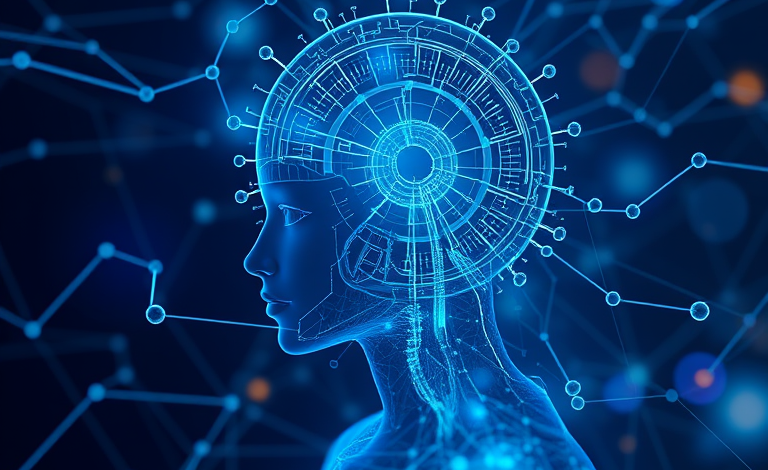Google: The AI Titan Taking a Breather?

Introduction: The Curious Case of Google’s AI Strategy
If the AI world were a high-stakes poker game, companies like OpenAI, Microsoft, and now even Meta and Apple would be going all in, aggressively pushing advanced AI models and integrations. Meanwhile, Google—the company that practically invented the modern AI landscape—still seems to be playing it cautiously.
For a company that dominated search, pioneered deep learning, and acquired DeepMind before AI was even mainstream, Google’s current pace in the AI race feels… measured. But is that really the case? Let’s dig into the key observations that might explain Google’s seemingly slow (but possibly strategic) approach to AI dominance in 2025.
1. Google’s AI Dominance Isn’t in Question (Yet!)
Let’s be clear—Google is still a giant in AI. It has been at the forefront of AI innovation for years. TensorFlow, DeepMind’s AlphaFold, and Google’s Transformer model (which gave birth to the entire generative AI boom) all originated from Google.
However, rather than rushing out every new AI breakthrough like OpenAI and Microsoft, Google has been taking a more calculated approach. Why?
- Google Search, though facing pressure from AI-driven alternatives, remains a dominant force in information retrieval.
- AI hallucinations (a fancy way of saying ‘AI confidently making things up’) could damage Google’s credibility.
- Google has a lot more at stake compared to startups and disruptors.
It’s not that Google is falling behind—it’s just playing the long game.
2. The Ghost of Bard’s Underwhelming Debut Still Haunts
When Google first introduced Bard in early 2023 (now rebranded under Gemini), it didn’t exactly shake the industry. Unlike ChatGPT’s viral success, Bard faced skepticism, especially after it flubbed an answer during its big reveal, wiping billions off Google’s stock value.
Since then, Google has been more cautious with AI rollouts, ensuring it doesn’t damage its brand reputation with half-baked releases. This cautiousness might make Google seem slow, but it’s a deliberate move to avoid another Bard-level embarrassment.
3. Google’s AI is Everywhere (But Not Flashy)
Google might not be making AI headlines like OpenAI’s ChatGPT-5 or Microsoft’s AI-powered Windows, but its AI is deeply integrated across its ecosystem:
- Search: AI enhances ranking algorithms, autocomplete, and multimodal search.
- Gmail: Smart Compose, AI-generated replies, and spam detection.
- Google Photos: Face recognition, image enhancements, and generative AI tools.
- YouTube: AI-driven recommendations, content moderation, and AI-generated video summaries.
- Android: AI-powered personal assistants and on-device processing improvements.
Unlike OpenAI and Microsoft, Google embeds AI into existing products rather than launching standalone AI services. This might make it seem less aggressive, but it also means Google’s AI is reaching billions without flashy PR.
4. Google’s AI Reinvention with Gemini Ultra
After the initial hiccups, Google rebranded its generative AI efforts under the Gemini umbrella. Now, Gemini Ultra competes directly with GPT-5 and Claude 3, offering multimodal capabilities (text, images, video, and audio combined). However, adoption has been slower than anticipated due to heavy competition.
Rather than racing to release AI tools first, Google is focusing on refining Gemini to integrate more seamlessly with Android, Chrome, and its cloud offerings. If successful, this could allow Google to leap ahead of its competitors in enterprise AI applications.
5. The AI Regulation and Ethics Dilemma
One major reason for Google’s cautious AI approach is regulatory scrutiny. Unlike OpenAI or emerging AI startups, Google faces constant watchdog attention due to its monopolistic presence in search and advertising.
As AI regulations tighten in 2025, companies like Google are under intense pressure to ensure:
- AI transparency (no hidden biases or misinformation).
- Data privacy (ensuring user information isn’t exploited).
- Compliance with international AI laws (especially in the EU and US).
OpenAI and Microsoft can take more risks, but for Google, a misstep could mean massive fines and lawsuits.
6. Google’s AI Revenue Model is Complicated
Unlike Microsoft, which monetizes AI through enterprise subscriptions and cloud services, Google’s main revenue comes from advertising. The problem? A powerful AI chatbot could reduce ad clicks.
If users get direct AI-generated answers, they may never visit websites, impacting Google’s ad revenue. This is why Google has been experimenting with AI-powered search results, but at a slower pace than expected. Balancing AI innovation without undermining its core business is a tricky challenge.
7. Google’s AI Talent and DeepMind’s Secret Weapon
Despite public perception, Google arguably has the best AI research team in the world. DeepMind, Google’s AI research arm, continues to deliver groundbreaking innovations, including:
- AlphaFold 3, which is revolutionizing drug discovery.
- AI-powered weather prediction models, improving climate forecasting.
- Advanced robotics AI, pushing autonomous systems forward.
Unlike OpenAI, which releases AI products for mass adoption, DeepMind’s approach is more research-driven, with real-world applications in healthcare, robotics, and scientific discovery.
8. The AI War is Heating Up in 2025
With OpenAI’s ChatGPT-5, Microsoft’s AI integrations in Windows 12, and Apple finally entering the AI game with Apple Intelligence, the competitive pressure is mounting. If Google remains too cautious, it risks losing ground, even if its technology remains superior.
However, with Gemini Ultra rolling out deeper integrations across Search, Android, and Cloud, 2025 might be the year Google truly asserts its AI leadership.
Conclusion: Slow and Steady or Risking Irrelevance?
So, is Google really losing the AI race? Not necessarily. It’s still a powerhouse, but its strategy is different—more calculated, more cautious, and more long-term-focused.
While OpenAI and Microsoft aggressively push Artificial Intelligence into consumer markets, Google is ensuring AI fits seamlessly within its vast ecosystem without damaging its core business. Whether this strategy will prove successful or leave it playing catch-up remains to be seen.
One thing is certain: Google isn’t out of the AI race—it’s just running it at its own pace. And in the world of tech, strategy matters as much as speed.




